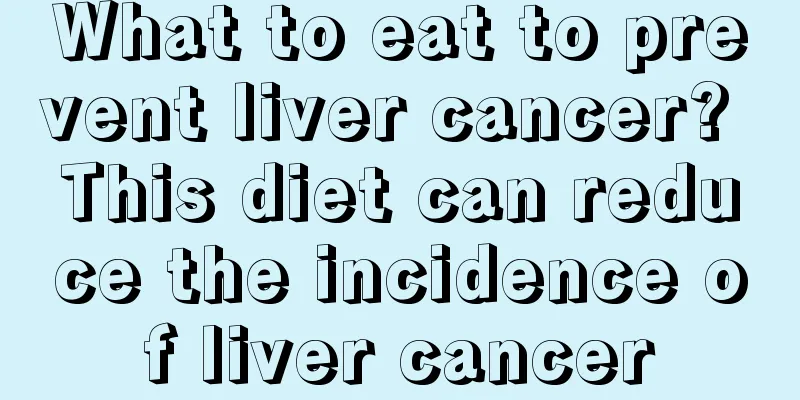Symptoms of prolapsed internal hemorrhoids, have you noticed?

|
There are no particularly obvious symptoms in the early stages of prolapsed internal hemorrhoids, so many people will ignore them. When they discover it, they will realize that the best time for treatment has been missed. Because prolapsed internal hemorrhoids will grow larger with time, the symptoms will become more and more, and the condition will become more severe. Now let me share with you some of the symptoms of prolapsed internal hemorrhoids. 1. Blood in stool: Bleeding during or after defecation, bright red in color, sometimes with a small amount of blood on the surface of the stool, or staining toilet paper red, sometimes with dripping or spurting blood. Because feces rub the mucous membrane, or because of excessive force during defecation, the pressure in the blood vessels increases, causing varicose veins to rupture, and there is spurting bleeding during defecation. Long-term and repeated bleeding, or multiple heavy bleeding, can also cause anemia. 2. Prolapse: As the hemorrhoids increase in size, they are squeezed by feces during defecation, gradually separating from the muscle layer and prolapse outside the anus. Sometimes 1-2 hemorrhoids prolapse at the same time, and sometimes all hemorrhoids and rectal mucosa prolapse together. Initially, they only prolapse during defecation and can be reset by themselves after defecation. For those with more severe symptoms, they need to be pushed back by hand or rest in bed before they can be reset. For those with severe symptoms, in addition to prolapse during defecation, they may also prolapse when exerting force, walking, coughing, sneezing, squatting, etc. Prolapsed hemorrhoids are very susceptible to infection, and they become incarcerated due to inflammation, edema, and pain, making it difficult to reset. 3. Pain: Simple internal hemorrhoids are generally painless, and sometimes only feel a sense of heaviness or difficulty in defecation in the anus. If the hemorrhoids are inflamed and swollen, there is thrombosis or incarceration in the hemorrhoids, which will cause pain; if the hemorrhoids are prolapsed and not reset in time, the pain will be aggravated; if incarceration occurs, there will be ulceration and necrosis, causing inflammation and edema of the anal margin, the pain will be severe and the patient will be restless. 4. Mucus outflow: The rectal mucosa is stimulated by hemorrhoids for a long time, causing increased secretions. In late-stage internal hemorrhoids, due to the relaxation of the anal sphincter, secretions often flow out of the anus. In mild cases, secretions flow out during defecation, and in severe cases, secretions flow out naturally even when there is no defecation, contaminating the underwear and causing great inconvenience to the patient. When internal hemorrhoids prolapse, there is more secretion. 5. Itching: Due to the stimulation of secretions or prolapsed hemorrhoids, the area around the anus becomes wet and unclean, causing eczema and itching. The itching is sometimes caused by the reflex action of prolapsed internal hemorrhoids. 6. Internal hemorrhoid attack: Internal hemorrhoids usually have mild symptoms and no great pain. If there is constipation or diarrhea, or excessive fatigue, it will suddenly worsen, which is called internal hemorrhoid attack. When internal hemorrhoids attack, hemorrhoids suddenly swell, protrude, burn, and hurt, and there is a pulsation and a feeling of foreign body filling. Due to the squeeze of dry feces, it is easy to rupture and bleed, and there is tenesmus. The attack lasts for 3-5 days. If the treatment is appropriate, the swelling will gradually dissipate, the blood clot will be absorbed, and the hemorrhoids will soften and shrink. Sometimes the swelling does not dissipate, and due to infection, suppuration, ulceration or obstruction of blood circulation, hemorrhoids may also necrotize. |
<<: Causes of prolapse of internal hemorrhoids, 5 professional analyses
>>: What are the symptoms of internal bleeding? Do you have blood in your stool?
Recommend
Is glioma hereditary?
Is glioma hereditary? Glioma is a modern brain tu...
If you have had mumps before, can you get it a second time?
Usually, after having mumps once, people will not...
Thyroid cancer is not all about lazy cancer. What are the symptoms of thyroid cancer?
Not all thyroid cancers are lazy cancers. In clin...
What are the symptoms of liver cancer? These 5 symptoms are the symptoms of liver cancer
What are the symptoms of liver cancer? The main s...
What are the common early symptoms of lung cancer? Be careful of these 4 symptoms, it may be lung cancer
For any disease, early detection and early treatm...
Are cherry kernels poisonous?
Cherry is a very delicious fruit, and it is rich ...
Remove the bitterness of bitter melon
Although bitter melon tastes bitter, it has medic...
The most effective way to prevent melanoma
Malignant melanoma is common in white people. Que...
The hazards of hair conditioner
Women are very caring about their hair. Sometimes...
Is cervical cancer contagious?
Among female diseases, many are common and prone ...
What should I do if my calves hurt after running?
Running is a common form of exercise, but if you ...
How many days can you wash your straightened hair
Many people like straight hair, and now the haird...
How to treat lung cancer? 5 best treatments for lung cancer
Lung cancer is still very common around us. If yo...
Do you know how to use a diaper pad correctly?
Infants and young children do not have the abilit...
What are the symptoms of herpes simplex? Here are four points for you to know easily
Herpes simplex is a relatively common skin diseas...









